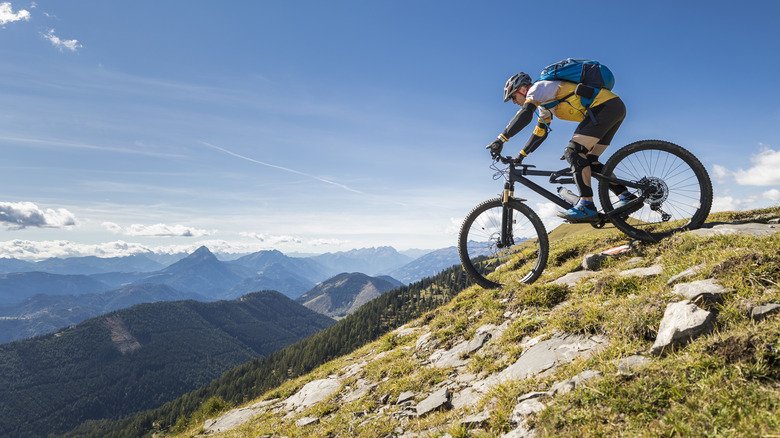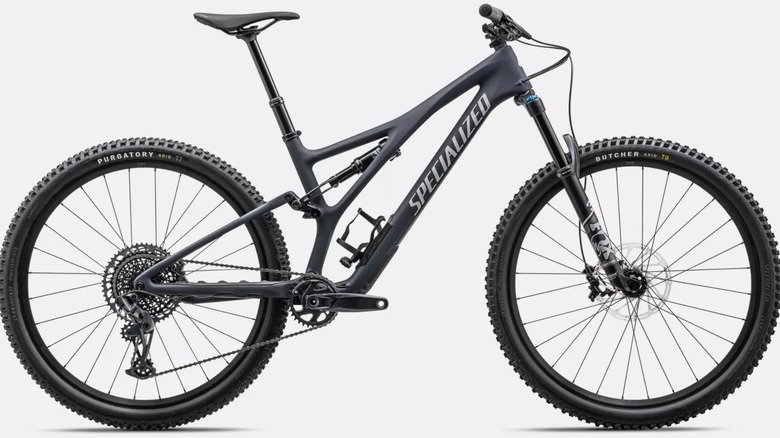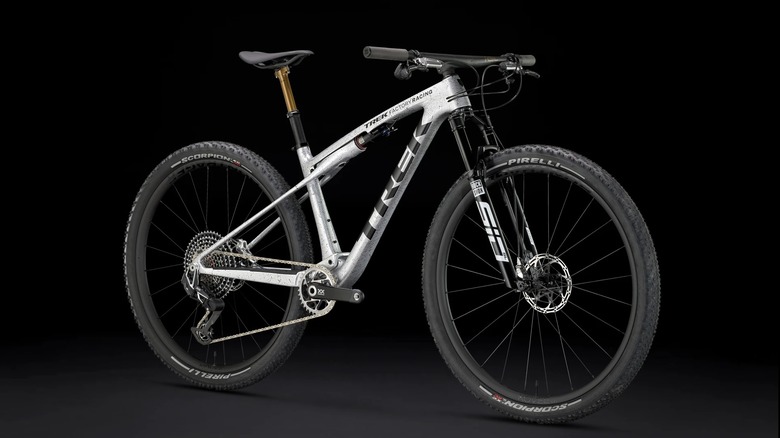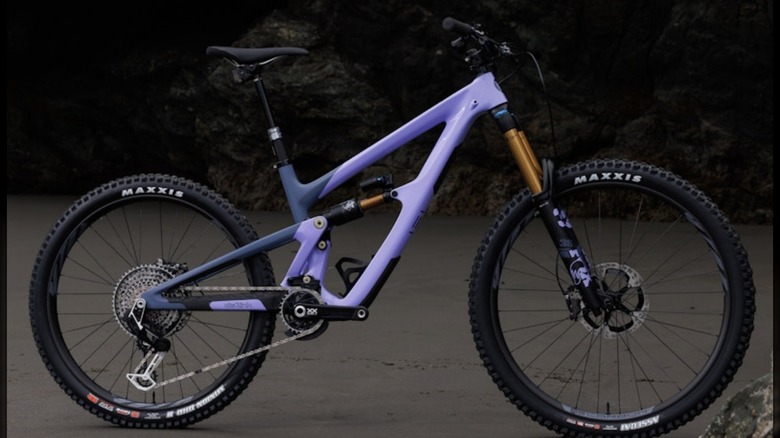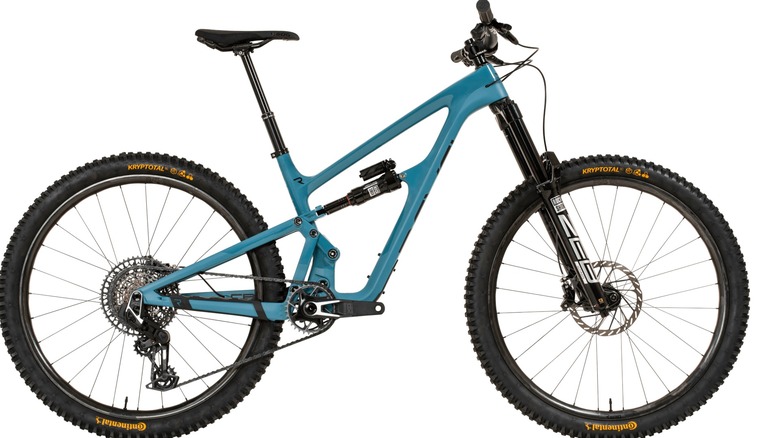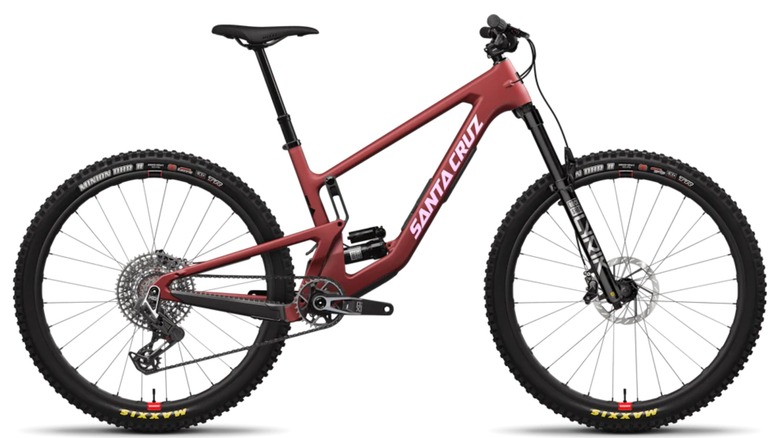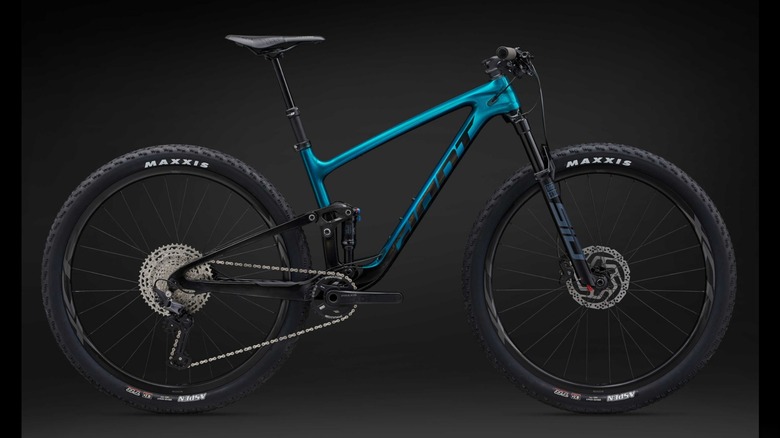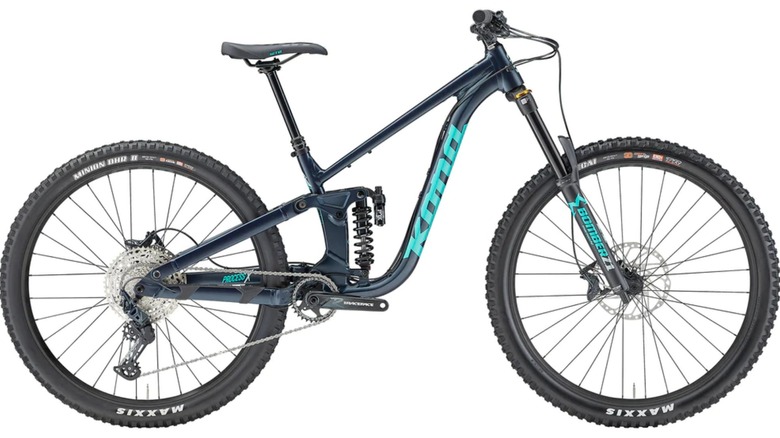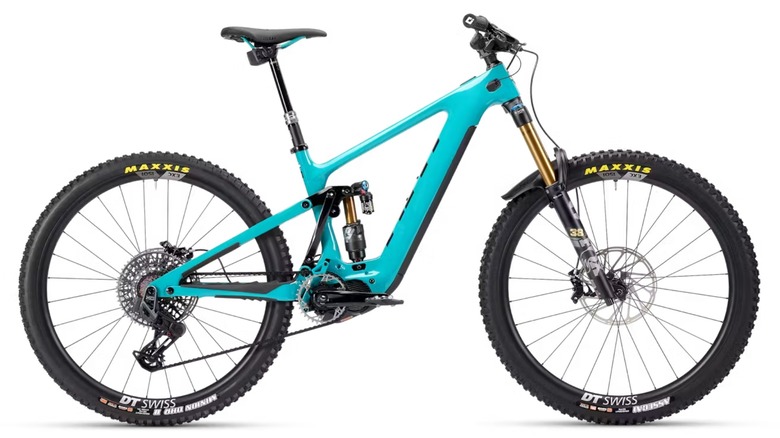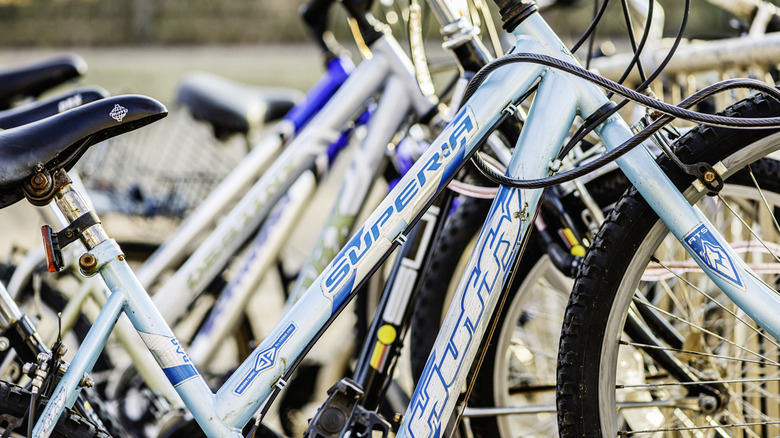The Best Mountain Bike Brands (And The Ones You Should Avoid)
Picking out the perfect mountain bike can make a big difference in your experience on the trail, whether cruising through local trails or dropping into big backcountry terrain. For dedicated mountain bikers, your bike is not just a piece of equipment. It's your ticket to adventure, exploration, and, most importantly, safety.
Mountain bikers make up a dedicated community of enthusiasts who take their rides, gear, and experiences seriously. Therefore, it's only logical that mountain bike brands should share this passion and commitment to excellence for their community. Today, we're looking at what makes a mountain bike brand truly stand out, exploring what features to look for in a great bike brand as well as the ones that typically fall short in the demanding world of mountain biking.
Whether you're a pro looking for advice or a complete newcomer thirsting for those first trails, this is a great place to start learning about the best mountain bike brands (and the ones you should avoid) to arm you with the knowledge to find the perfect bike brand for your individual needs. Get ready to gear up and confidently head out into the great outdoors.
Best: Specialized
Specialized is a major player in the high-end bicycle market and has well deserved its position as a perennial favorite among amateurs and professionals alike. Since 1974, Specialized has been forging a unique path as an innovator for cyclists, by cyclists. The sport of mountain biking as we know and love it today was still in its infancy during the 1970s, but vision and a love for cycling drove Specialized to introduce the first production mountain bike with the Stumpjumper in 1981.
The brand's passion for pushing the envelope has not abated in the intervening decades, and today, the range includes everything from cross-country (XC) hardtails to long-travel, full-suspension downhill racers and from entry-level options through to elite-level, competition-ready machines that bear the S-Works mark. Even the Stumpjumper has not escaped the Specialized stable.
The latest iteration of this time-honored machine improves upon generations of geometry-tweaking to give riders stability and control while ripping aggressive trails in any condition. New technology has not evaded the Specialized team either, with new e-bike offerings incorporating proprietary e-drive motors tuned to match the riding style of the bike they are mounted in.
It's safe to say that innovation and development will be a staple of Specialized for years to come.
Best: Trek
Trek had remarkably humble beginnings for such a major force in the bicycle world. In the mid-1970s, the Trek bicycle company was formed over a few drinks in a quiet Wisconsin bar, and it has gone from strength to strength ever since.
As the sport of mountain biking matured following its introduction into the Olympics in 1996 at Atlanta, Trek grew and developed its off-road offerings. This culminated with the establishment of the 'C3 Project' and the 'Trek Factory Racing Team' in the 2010s. Through close access to high-end racing and a wise investment in research and development, Trek has built a comprehensive mountain bike catalog with everything to suit first-time novices up to seasoned professionals.
A notable example of this innovation and design is the Fuel EX, a dual-suspension, singletrack legend. The latest version has been updated and improved in almost every way, from longer suspension travel to extended frame geometry. The incremental evolution in frame design makes the sixth-generation Fuel EX more stable at speed without compromising agility and rider control. Trek even managed to fit a hidden storage compartment in the down tube.
Bold new bike tech has not escaped the off-roading range either. The company has incorporated the latest e-drive motors into its offerings, from speed-focused hardtails to long-travel trail bikes. Trek looks set to continue its quest to push the limits of the mountain bike world for years to come.
Best: Ibis
It sounds a bit like an April Fools' joke, but from its humble beginnings on April 1, 1981, Ibis evolved into a legitimate name in the mountain bike world.
Founder Scot Nicol initially got to work learning the frame-building craft alongside the pioneers of the mountain biking movement. This technical apprenticeship, combined with a deep passion for ripping mountain trails, has created a trusted and respected brand for mountain bikers, by mountain bikers.
As you might expect from a smaller manufacturer, the Ibis mountain bike catalog is concentrated into only a handful of models, but this modest lineup packs a mighty punch. The range covers its bases well with offerings for gravel riders through to enduro racers and down-hill e-bikes built for rough terrain.
The Ibis Rimpo V2S has garnered praise from the mountain bike community and is perhaps the best example of the company's dedication to quality and design. The V2S is the latest iteration of this famed trail bike and exemplifies Ibis' commitment to continued design development. Thanks to a steep seat-tube angle and relaxed steering geometry, the Rimpo has been made more stable while ripping and improves comfort and control when ascending.
Although a much larger operation than in its early years, Ibis today remains as committed as ever to developing the next generation of machines for serious mountain bikers.
Best: Revel
Headquartered in Carbondale, Colorado, Revel is a unique newcomer that is making waves in the mountain bike world. From its community-focused mindset to its group of hardcore riders and bike creators, Revel is an innovative company with bikes to match.
And how could they not innovate? The company's location was chosen to provide the Revel team of climbers, skiers, and mountain bikers with a convenient backyard. To make the most of this epic playground, Revel is dedicated to "engineer and build the absolute best bikes in the world."
This passion and drive are most clearly on display in the new Rascal, a do-it-all beast packing the latest tech. The proprietary CBF (which stands for Canfield Balanced Formula, we'll have you know) focuses the peddle forces around the top of the chainring. This maximizes pedaling efficiency and provides for playful suspension travel. This, combined with a shorter wheelbase for precise handling, has caused a stir in the mountain bike world.
Revel has also partnered with engineers to develop Fusion-Fiber which promises to be stronger and lighter than conventional carbon fiber as well as reduce its environmental impact. With such a drive for mountain bike innovation and so many gnarly trails to test their creations, we expect Revel to further its impact in the years to come.
Best: Santa Cruz/Juliana
Founded in 1993 in a small garage in Santa Cruz, California, the brand quickly made a name for itself in mountain biking. From the start, Santa Cruz sought to upset the norms with bikes that were stronger, more agile, more responsive, and meet the real needs of riders across different terrains.
Santa Cruz's journey of product evolution is highlighted by its diverse range of high-performance bikes, including the iconic V10 and the versatile Bronson. With the introduction of Juliana, a line dedicated solely to women cyclists, the company has shown its dedication to inclusion. These bikes are all engineered specifically for women's ergonomics but with the same high-quality materials and advanced features as the rest of the Santa Cruz lineup.
Santa Cruz is a leader in mountain bike technology, having developed the Virtual Pivot Point (VPP) suspension. This delivers new, unparalleled shock absorption and smoother handling than ever before, allowing a rider to take control of rough descents or aggressive hills easily. At the same time, carbon fiber is integrated into any of their frame designs so that every bike can achieve optimal strength, stiffness, and lightness.
The company invests heavily in research and development, with ongoing projects focusing on enhancing material science and propulsion techniques to offer even lighter, faster, and more environmentally friendly bikes. As mountain biking evolves, Santa Cruz is poised not just to react, but to lead, promising exciting advancements that will redefine the industry.
Best: Giant/Liv
Anyone in the bicycle world will be familiar with Giant. The behemoth from Taiwan has been producing these much-loved machines since 1972 and has been pushing the limits of carbon fiber bicycle production since 1987.
As a cutting-edge developer, it sponsored major road cycling teams and moved into the mountain bike sphere in 1995. In 2008, Giant formed the Liv brand, a dedicated women-focused bike label that is run by women, for women. Giant and Liv's catalogs have always been vast, covering everything from your first 12-inch peddler found under the Christmas tree to your competition-ready race bike in any category.
With such a long history of innovation and quality production, it's no wonder that Giant and Liv are such power-houses in the mountain bike game. The Liv Intrigue X puts Liv's development strength on full display. The use of lightweight construction without compromising strength or geometry is coupled with an impressive SyncDrive motor to make for a tech-filled trail rider.
The Giant label has an equally impressive offering in the Trance X. This trail bike uses a progressive suspension system paired with industry-leading RockShox units to give 135-millimeter rear travel and 150 millimeters at the front without conceding control or peddling efficiency. With such a customer-focused design ethos, the next generations of Giant and Liv bikes promise exciting innovation.
Best: Kona
Born from a deep love of nature and mountain biking, Kona was founded in 1988 with one guiding principle: build bikes that could withstand the demanding and diverse terrains of the Pacific Northwest. From the beginning, Kona was about building a bike culture that put the rider first.
Kona's passion for mountain biking continued beyond just making innovative bikes. Its range of bikes is impressive, known particularly for its multi-award-winning hardtail bikes. From the classic Cinder Cone to the modern-day Process series, Kona's lineup has blossomed to encompass each model developed expressly with rider feedback and riding conditions in mind.
The Kona Process (in its many iterations) is possibly the best example of how innovation and understanding of riders' needs come together perfectly in Kona's lineup. The X-CR designation is noted for its high-speed-focused geometry that allows for a forgiving ride while also being lively and easy to control. Also included in this range is the Process X-DH which offers high-level downhill racing control and feel but is paired with components that allow it to sit at a more amateur price point.
Kona still focuses on the ultimate high-end bikes and maintains the Kona Factory Team, which races top-level competitions that push the company's Kona machines to the limit.
Best: Yeti
Yeti has become synonymous with mountain biking and is the brand of choice for those who want a sturdy, precise ride. It particularly appeals to serious mountain bike enthusiasts and professional racers.
Yeti hit the mountain bike scene in 1985, producing custom machines for the still-fledgling mountain bike race scene. This close relationship with mountain biking did not only consist of bike building; they also formed an impressive race team. This link between the race world and design development has culminated in the current lineup of eight performance-focused bikes to suit different riding styles and terrain demands.
The SB120 is Yeti's answer for people who want a bike that can do it all. This new model was released in 2022 and shows off the brand's innovative features and attention to detail. The travel numbers are combined with a diverse parts offering from component partner SRAM. Adding to the SB120's high-quality build is Yeti's proprietary suspension system.
Yeti developed the innovative Switch Infinity suspension system designed to optimize riding stability and shock absorption over diverse terrains. This system is an example of Yeti's technical excellence and rider-centric design. Yeti also continues to refine its bikes' frame geometry while integrating high-quality materials to achieve an optimal balance of lightweight strength and performance.
Bike Brands to Avoid
When it comes to mountain biking, there's an entire world out there that's all its own, where performance and durability are the name of the game. However, a few brands focus on the mass market, which is more suited for the casual biker. Here's a rundown of several brands that might not meet the expectations of more serious riders.
Originally big in the BMX scene, Mongoose has expanded into mountain biking. While they maintain a nostalgic appeal, many of their models now populate department store aisles, designed with cost rather than performance in mind.
A historically solid brand, Schwinn now makes bicycles with highly variable quality. The company sells some high-quality models good for serious mountain biking, but also sells through department stores, which tend to feature their budget lines — no-frills machines lacking durability or performance features for serious mountain biking.
Next bikes are among the cheapest, mostly found in department stores. These bikes are meant for occasional leisure riding and likely can't withstand the tough conditions imposed on mountain bikes. The costs are cheap at the expense of quality and poor performance, which are most important in extreme mountain biking.
For serious mountain bikers, choosing the right bike is everything. You need a brand that can withstand the sport's challenges and keep you safe while you tackle the trails. It's one of the most important decisions you'll make.
How did we choose these brands?
With so many bike brands on offer and so many individual bicycle options to choose from, it's important to consider a few key points when deciding which ones stand out and which are less than inspiring.
When formulating our list, we considered many important factors to reach a consensus. We looked for brands with a passion for innovation that push the boundaries of what's possible in mountain biking because they drive our sport forward.
Likewise, we looked for brands with a versatile catalog that showed an understanding of the market and the demands of riders. Importantly we took into account the feedback of customers as well as brand reputation, after all, who knows the bikes better than those who go out and ride them every day?
A brand's history and legacy can influence its expertise in making the best mountain bikes on the market. Each brand's journey and involvement in the community were also taken into account in our selection. While not the primary focus, we also considered the price range and accessibility of these bikes.
When choosing a mountain bike, it's essential to consider your specific needs, budget, and the type of riding you plan to do. Visiting local bike shops, testing different models, and doing thorough research will help you find the best mountain bike for your adventures.
